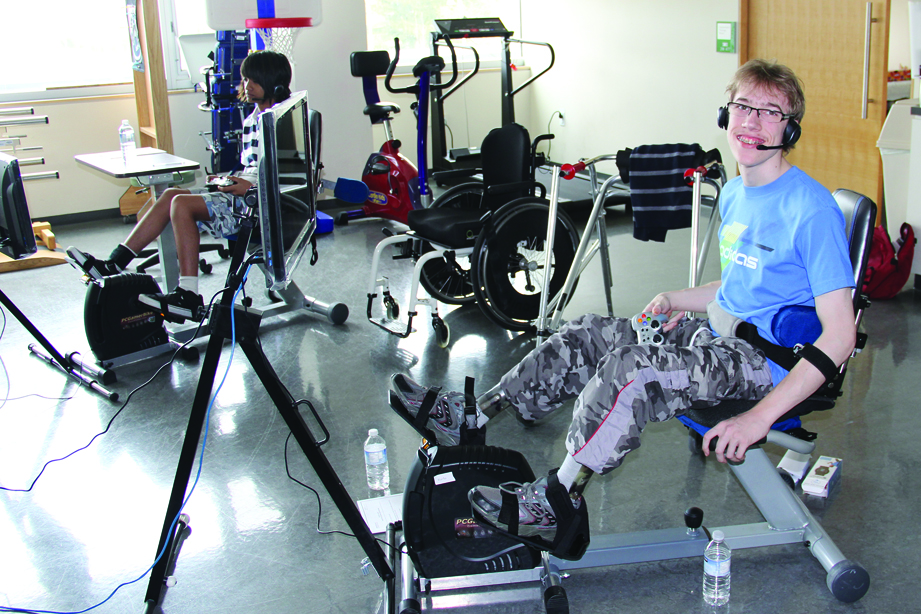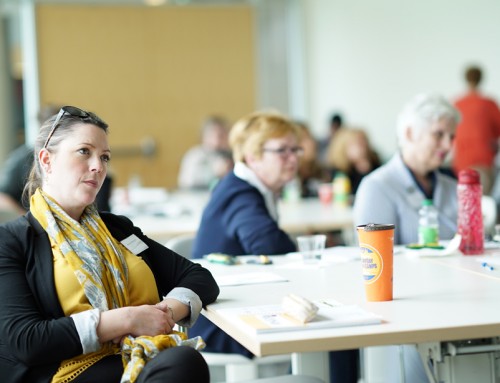Project Description
Challenge
Many children with brain-based disabilities face challenges when it comes to physical fitness. The use of exercise video games (termed exergames) provides a unique approach to engaging youth in physical exercise and social interaction with their peers.
A team led by Darcy Fehlings (Holland Bloorview) and Nicholas Graham (Queen’s University) developed an exergame called Liberi, geared for children ages 12 to 16 with cerebral palsy (CP). The game involves a stationary bicycle that is connected to a computer. When the player pedals, their avatar on the screen moves. The children direct their game character using a handheld game controller. Participants wear headsets to communicate with other players in the game, and there are seven unique minigames which encourage social interaction. The games use novel algorithms to balance difficulty for people with different abilities.
Project Summary
An after-school program was set up at Sunny Hill Health Centre for Children in Vancouver and at Holland Bloorview Kids Rehabilitation Hospital in Toronto to assess the effectiveness of the exergame. The goal was to study the efficacy of Liberi in promoting physical activity and social interaction in kids with CP.
The team also held a SportFit Camp at Holland Bloorview Kids Rehabilitation Hospital in Toronto to see if a previously developed algorithm was effective. The algorithm intends to help accommodate differences in children’s gross motor skills and balance as a way of making it easier for kids of all abilities to play with one another.
An in-school program was held at Central Elementary School in Chilliwack to test the use of the games with children with Fetal Alcohol Spectrum Disorder. The goal of the study was to increase physical activity and social interaction for this group.
Result
In all three studies, children’s levels of activity were comparable to those seen in typically-developing children participating in organized sports. Data from the SportFit Camp showed that the balancing algorithms were effective at making adjustments to the game based on each child’s physical abilities. In the Chilliwack study, the children played an enjoyed the games despite occasional difficulties with emotional regulation. Improvement was seen in children’s executive function. The team is also in the process of developing advanced software that will eventually allow any exercise bike to be converted into an exergaming bike, which would make the game cost-effective and accessible.
Funding
Partners – $400,000
Team
Principal Investigators
Nicholas Graham, Queen’s University
Darcy Fehlings, Holland Bloorview Kid’s Rehabilitation Hospital
James Reynolds, Queen’s University
Co-Investigators
Alison Pritchard Orr, University of Fraser Valley
Kathy Keiver, University of Fraser Valley
Esias van Rensburg, University of British Columbia
Diane Wickenheiser, Sunny Hill Health Centre for Children
Previous Cycle I Initiatives
The Benefits of Active Video Games for Youth with Cerebral Palsy








